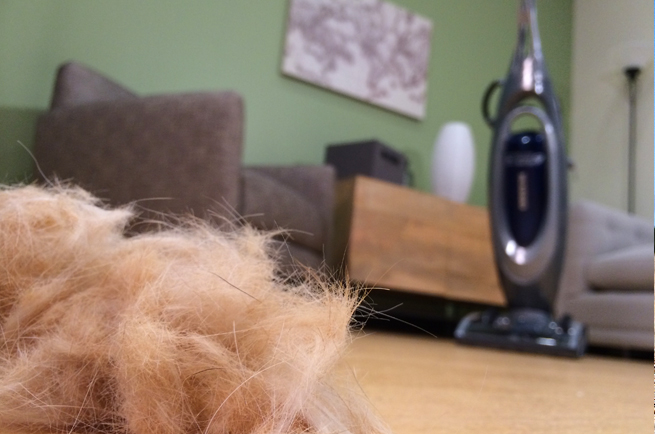Pets and allergies
Sometimes your best friend can in fact be your worst enemy. Here we outline what causes pet allergies and how to deal with them.
29 May 2015 By Zookie Comments

Pets are extremely fun to be with, and science has proven that having a pet in your home can improve a person’s well-being and actually lower stress levels. However, not everyone can reap the wonderful benefits associated with having a pet because of their allergies.

What causes them?
Some people claim they’re allergic to dogs, while others say they’re allergic to cats. However, what these people are really allergic to are not the animals themselves, but the proteins present in the animals’ urine, saliva, and dander.
Dander are the little bits of skin that animals shed. Before you get all “ewwww gross!”, humans shed skin cells too. In fact, this is what dust is mostly made of. However some people’s immune systems react negatively to animal dander. Many types of animals can cause allergic reactions, however the usual culprits are dogs, cats, and rodents.

How do I know if I have a pet allergy?
Any contact with pet allergens can trigger a reaction. Some symptoms of pet allergies include:
- Itchiness in the roof of the mouth, nose, or throat
- Frequent sneezing
- Watery, red, or itchy eyes
- Congestion in the nose
- Coughing
- Pain and pressure in the face
- Runny nose
- Swelling and slight blueness in the skin under the eyes
- Hives (red, raised patches on the skin)
- Itchiness in the skin
- Eczema
Other things to look out for
Children with pet allergies are not always able to express their discomfort so make sure to watch out for any unusual nose-rubbing, eye-scratching, and sneezing.
What's more, individuals suffering from pet allergies and asthma might have a harder time with the allergy symptoms. Individuals suffering from these two conditions might feel a tightness or pain in the chest, experience laboured breathing, and hear a wheezing sound when exhaling. This can make it hard for a good night’s sleep because of the effects of allergens on the respiratory system.

What do to if you're allergic to your pet
Doctors suggest people with pet allergies limit their exposure to the animal and therefore allergens. This doesn’t mean banishing the pet from the household!
A few steps to ensure you can continue to live with your furry friend without discomfort are to:
- Make sure that your home is always clean. Wash the walls, the ceilings, the floors, and vacuum frequently.
- Upholstered furniture is a magnet for pet saliva and dander. Make sure to you replace these items, or move them to where your pet can’t reach them.
- Hypoallergenic and allergen-blocking coverings or cases are available for mattresses and cushions.
- Replace carpets if vacuuming and shampooing them does not get rid of the allergens.
- Replace bedding that has come into contact with pets.
- Use HEPA (or high efficiency particulate air) filters in your home, which can significantly reduce pet hairs and dander in the airflow.
It may seem like a lot of work, but by just taking a few of these simple steps, you and your bestie can stay fur-friends forever. :)
29 May 2015 By Zookie Comments
comments powered by Disqus






